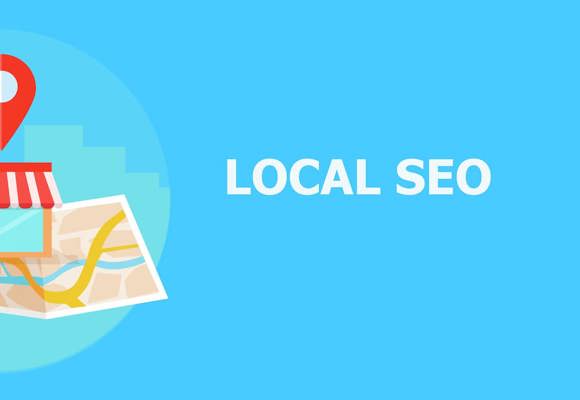December 17, 2023
Maybe the act of having a website was enough to be successful online five years ago– but not anymore. It’s no longer enough just to exist online. Because of the popularity of online shopping, you’ll need to stand out online in order to make sales. This is where Search Engine Optimization (SEO) comes into play. It’s a pivotal tool for getting your website onto the computer screens (and phone screens!) of potential customers.
What is SEO?
SEO revolves around optimizing your website to rank higher in search engine results. By strategically implementing specific SEO techniques, you can improve your website's visibility, attract more qualified leads, and ultimately boost sales. Let's explore the key elements of an effective SEO strategy for e-commerce and how it can elevate your business.
Understanding Keywords: The Foundation of SEO
What did you type in the search bar to find this article? Keywords serve as the foundation of any successful SEO strategy. These are the words or phrases that users enter into search engines when looking for specific products or information; those keywords help the search engine and its top-secret algorithms to match you with the results most likely to match what you’re seeking. For e-commerce businesses, identifying and targeting relevant keywords related to your products or services is how you’ll rank your page.
First, you’ll have to find the right words people use when searching and insert them in your site’s titles, descriptions, and content. Conducting thorough keyword research using tools like Google Keyword Planner or SEMrush can help you discover high-volume, low-competition keywords that your target audience is searching for.
Incorporating these keywords naturally into your product descriptions, titles, and meta tags is the trick to SEO. You’ll pop up higher and be seen sooner than your competitors.
Optimizing Website Structure and Content

To help your website be shown higher on search engine results pages, it needs to be easy for search engines to understand. This means making sure that it loads quickly, works well on mobile phones, and is well organized.
A well-structured website improves the user experience and plays a vital role in SEO. Your e-commerce site should be user-friendly and easily navigable. Organize your products into categories and subcategories, making it simple for visitors to find what they're looking for. Google ranks user-friendly pages higher in search results.
Compelling and informative content is also key. Once a visitor lands on your site, you want them to like what they see and stick around. High-quality, valuable content fosters engagement and bolsters your site’s authority through backlinks and social sharing. The more people who visit your website and stay there, the higher you’ll rank on search engine results pages.
Backlinks, or inbound links, are links from other websites that direct users to your site. They are useful for SEO, as search engines consider them as votes of confidence in your content's credibility and relevance. They represent your brand’s credibility and connectedness to the online world.
Generating high-quality backlinks from reputable websites within your industry can significantly improve your site's authority. You can find relevant backlinks through guest blogging, influencer partnerships, or by creating shareable, valuable content that naturally attracts links from other sites.
Updating Content for Freshness
Google prefers up-to-date, relevant content that reflects current information and aligns with users' shifting interests. Websites that frequently update and add new content tend to perform better in search rankings, signaling to search engines that the site is active and valuable to users.
While freshness is crucial, the type of content matters, too. Your site should be a source of genuinely new and valuable information. Try creating engaging product descriptions, blog posts, and how-to guides. Evergreen content, or articles that remain relevant over time, also holds value.
Content freshness is just one of many ranking factors. Your SEO strategy should include publishing new content regularly, while also updating old content. This can add value for your audience while creating opportunities to incorporate relevant keywords, further boosting your site's visibility.
Leveraging Local SEO for E-commerce
For e-commerce businesses with physical locations that target specific communities, local SEO is a game-changer. Optimizing your website for local searches involves including location-based keywords in your content. When people search “bakery near me,” your bakery should be the first one to pop up.
You’ll need to create a Google My Business profile that includes your business’s NAP (Name, Address, Phone number) information. The NAP information should be consistent across all online platforms. This allows your business to appear higher in local search results, driving targeted traffic from potential customers in your area. Potential customers can see your company’s recent reviews, hours, and location. Make that first impression count!
Analyze Results for Optimization
Implementing an SEO strategy is an ongoing process that requires continuous monitoring and analysis. Utilize tools like Google Analytics to track your website's performance. These tools will help you monitor keyword rankings and gain insights into user behavior.
Regularly analyzing this data can help you identify areas for improvement and adapt your SEO strategy accordingly. By staying agile and responsive to changes in search engine algorithms and user trends, you can continually optimize your site. Adapting to changes is better for search engine visibility and higher conversion rates.
Investing in an SEO Strategy in 2024
Looking to supercharge your eCommerce presence with a refined SEO strategy? With search engines constantly evolving, nailing down your SEO game will be the king in 2024. Standing out in the crowded online world means ranking high and being visible. It's not just about keywords. It's about understanding user intent, optimizing for voice search, and creating content that truly connects.
Contact us today for personalized insights and expert guidance on maximizing your online store's visibility and sales potential. In 2024, SEO won't just be a nice-to-have; it'll be the absolute ruler for businesses wanting to thrive in the e-commerce landscape.
Connect with Your Customers!
E-Commerce and SEO go hand-in-hand. Let's make sure your approach to both is cohesive and successful.



